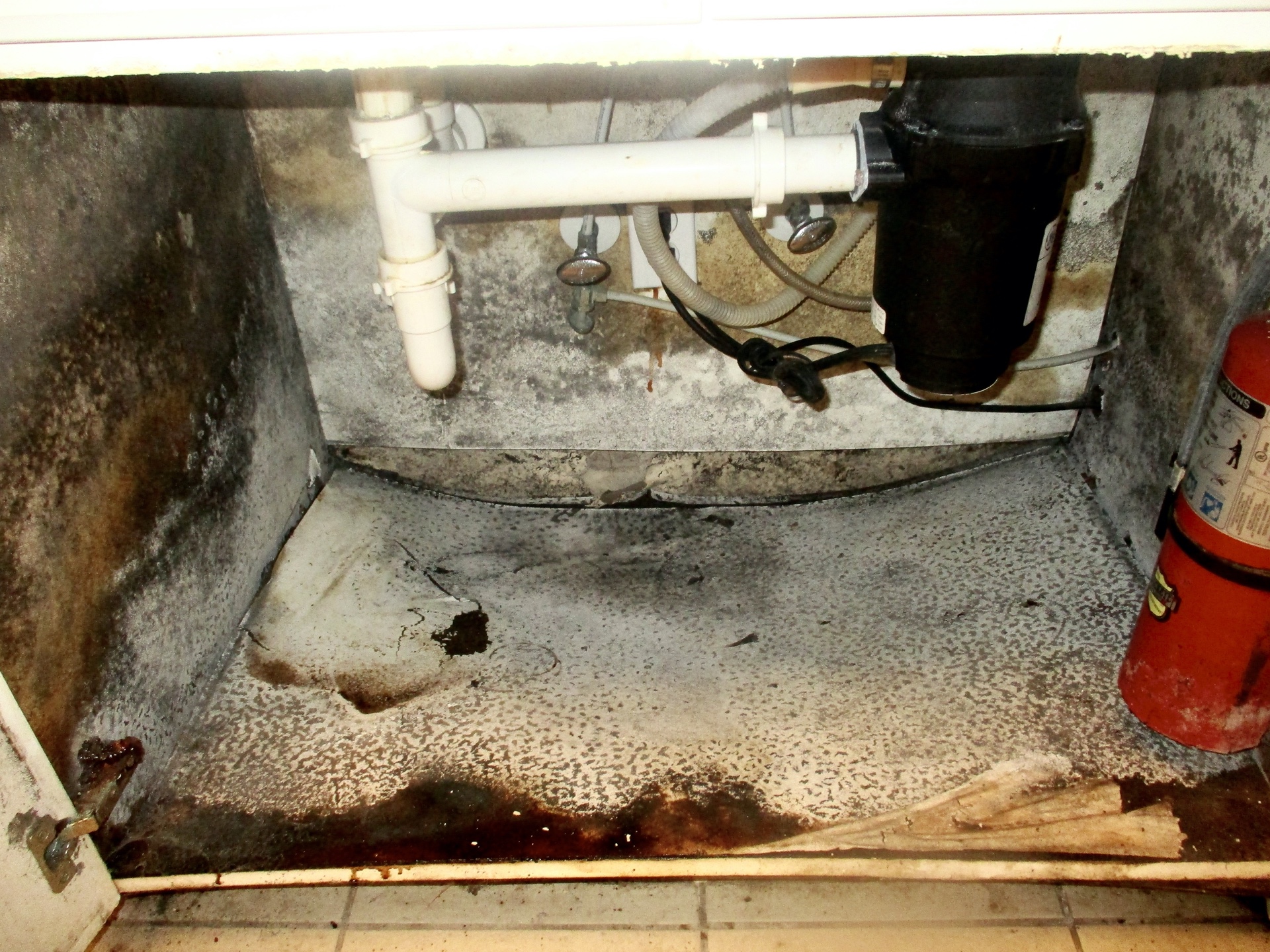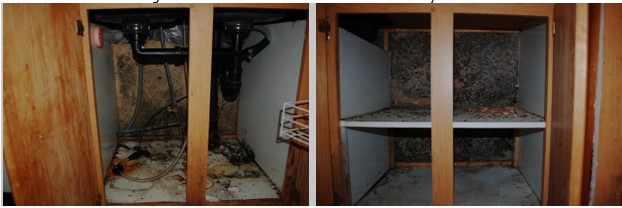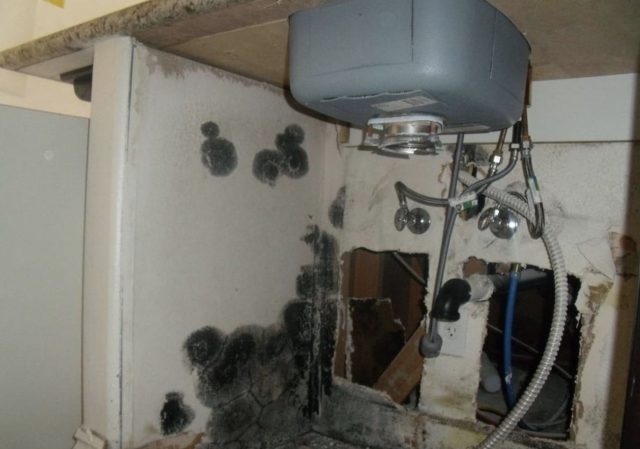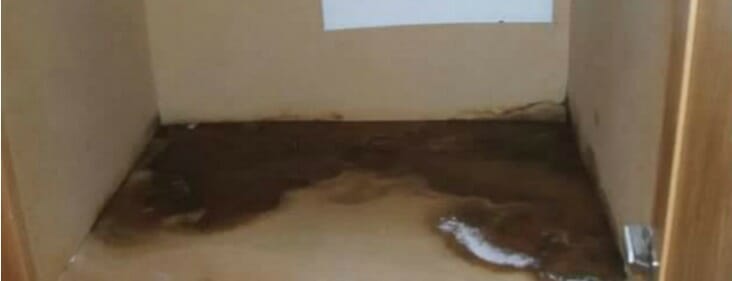Having a musty smell under your kitchen sink can be unpleasant and can make your entire kitchen smell bad. Not only is it a nuisance, but it can also be a sign of a bigger problem such as mold or mildew. Luckily, there are several ways to get rid of the musty smell and prevent it from coming back. How to Get Rid of Musty Smell Under Kitchen Sink
Before we dive into the solutions, it's important to understand the root cause of the musty smell. The most common cause is water buildup or leaks under the sink. This can happen due to a faulty pipe or improper installation. Another cause could be a lack of ventilation, causing moisture to build up and create a musty smell. Lastly, if you keep cleaning supplies or sponges under the sink, they can also contribute to the musty smell. Causes of Musty Smell Under Kitchen Sink
If the musty smell is not too strong, you can try some DIY solutions to get rid of it. The first step is to remove everything from under the sink and thoroughly clean the area. You can use a mixture of hot water and white vinegar to clean the inside of the cabinet and the pipes. This will help get rid of any mold or mildew that may be causing the smell. You can also sprinkle baking soda inside the cabinet to absorb any remaining odors. DIY Solutions for Musty Smell Under Kitchen Sink
If the musty smell persists after trying DIY solutions, it's best to call a professional plumber to check for any leaks or water damage. They will be able to fix any issues and prevent the musty smell from coming back. Additionally, if there is mold or mildew present, a professional can safely remove it and clean the area thoroughly. Professional Solutions for Musty Smell Under Kitchen Sink
Prevention is key when it comes to dealing with musty smells. Here are a few tips to help prevent the smell from coming back:Preventing Musty Smell Under Kitchen Sink
When trying to get rid of the musty smell, there are a few common mistakes that people make. One of the most common mistakes is using bleach to clean the area. While bleach may seem like a good solution for eliminating odors, it can actually make the musty smell worse by creating a toxic gas when mixed with other cleaning products. Another mistake is not fixing the root cause of the smell, such as a leak, which will only result in the smell returning.Common Mistakes When Dealing with Musty Smell Under Kitchen Sink
There are several products available in the market that can help get rid of musty smells under the sink. These include enzymatic cleaners, odor absorbers, and antimicrobial sprays. It's important to read the labels and choose products that are safe for the specific materials and surfaces under your sink. Products to Use for Musty Smell Under Kitchen Sink
Regularly cleaning under your kitchen sink is essential for preventing musty smells. To clean the area, start by removing everything from the cabinet and wiping down the surfaces with a cleaning solution. Then, use a pipe brush to clean inside the pipes and remove any buildup. Lastly, disinfect the area and let it dry completely before putting everything back under the sink.How to Clean Under Kitchen Sink to Get Rid of Musty Smell
If the musty smell persists and you suspect mold may be the cause, here are some signs to look out for:Signs of Mold Under Kitchen Sink
If you notice any of the above signs of mold or mildew, it's best to call a professional immediately. Attempting to remove mold on your own can be dangerous and can further spread the spores. A professional will have the proper equipment and knowledge to safely remove the mold and prevent it from coming back.When to Call a Professional for Musty Smell Under Kitchen Sink
The Causes of a Musty Smell Under Your Kitchen Sink

Introduction
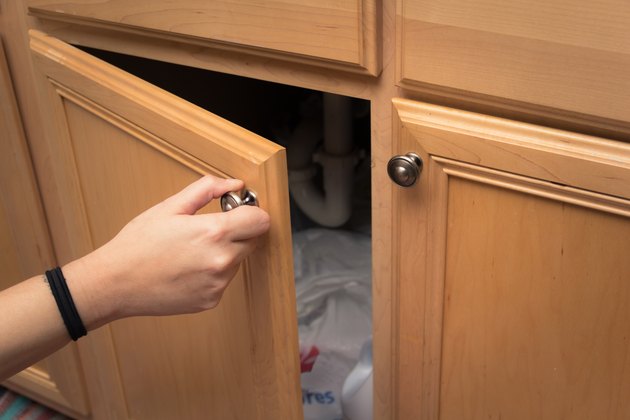 The kitchen is often considered the heart of the home, a place where delicious meals are prepared and cherished memories are made. However, it can also be a source of frustration when unpleasant odors start to linger. One such problem is a musty smell coming from under the kitchen sink. This can be a cause for concern, not only because it can make your kitchen smell unpleasant, but it may also indicate an underlying issue. In this article, we will explore the main causes of a musty smell under the kitchen sink and how to address them.
The kitchen is often considered the heart of the home, a place where delicious meals are prepared and cherished memories are made. However, it can also be a source of frustration when unpleasant odors start to linger. One such problem is a musty smell coming from under the kitchen sink. This can be a cause for concern, not only because it can make your kitchen smell unpleasant, but it may also indicate an underlying issue. In this article, we will explore the main causes of a musty smell under the kitchen sink and how to address them.
Water Leaks
 The most common cause of a musty smell under the kitchen sink is water leaks. Over time, pipes and connections can become worn or damaged, leading to small leaks. These leaks can cause water to accumulate in the dark, damp space under the sink, creating the perfect environment for mold and mildew to grow. These fungi not only produce a musty odor, but they can also be harmful to your health. If you notice a musty smell coming from under your kitchen sink, the first thing you should do is check for any visible signs of water leaks. This could be in the form of water stains, dampness, or mold growth.
The most common cause of a musty smell under the kitchen sink is water leaks. Over time, pipes and connections can become worn or damaged, leading to small leaks. These leaks can cause water to accumulate in the dark, damp space under the sink, creating the perfect environment for mold and mildew to grow. These fungi not only produce a musty odor, but they can also be harmful to your health. If you notice a musty smell coming from under your kitchen sink, the first thing you should do is check for any visible signs of water leaks. This could be in the form of water stains, dampness, or mold growth.
Poor Ventilation
 Another common cause of a musty smell under the kitchen sink is poor ventilation. The space under the sink is often dark and lacks proper airflow, making it an ideal breeding ground for mold and mildew. If your kitchen is not properly ventilated, the moisture from daily activities such as cooking, washing dishes, and using the dishwasher can become trapped under the sink, leading to a musty smell. To improve ventilation, consider installing a vent fan or opening a window while using the kitchen.
Another common cause of a musty smell under the kitchen sink is poor ventilation. The space under the sink is often dark and lacks proper airflow, making it an ideal breeding ground for mold and mildew. If your kitchen is not properly ventilated, the moisture from daily activities such as cooking, washing dishes, and using the dishwasher can become trapped under the sink, leading to a musty smell. To improve ventilation, consider installing a vent fan or opening a window while using the kitchen.
Improper Waste Disposal
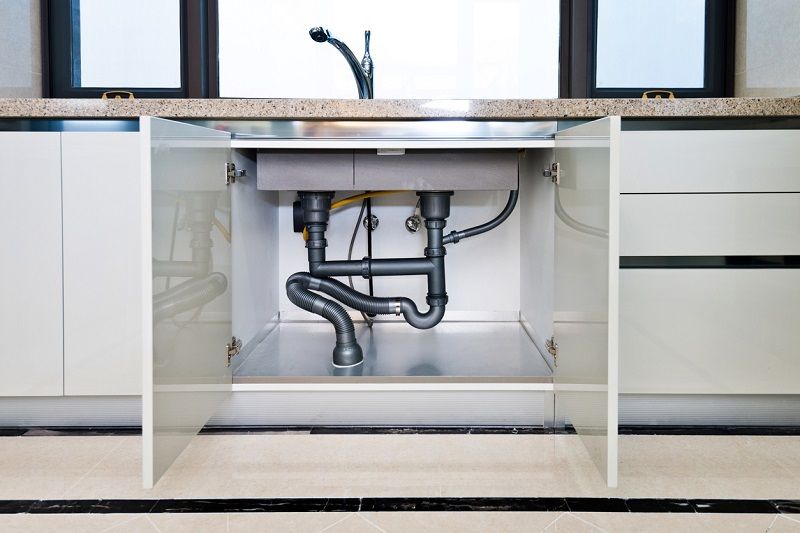 The items we store under the kitchen sink, such as garbage cans and cleaning supplies, can also contribute to a musty smell. Food waste, especially if not disposed of properly, can attract pests and produce foul odors. Additionally, using harsh chemicals and cleaners can release strong fumes that can linger in the enclosed space under the sink. To prevent this, make sure to properly dispose of food waste and use natural, non-toxic cleaners.
The items we store under the kitchen sink, such as garbage cans and cleaning supplies, can also contribute to a musty smell. Food waste, especially if not disposed of properly, can attract pests and produce foul odors. Additionally, using harsh chemicals and cleaners can release strong fumes that can linger in the enclosed space under the sink. To prevent this, make sure to properly dispose of food waste and use natural, non-toxic cleaners.
Solution: Regular Cleaning and Inspections
 To get rid of a musty smell under your kitchen sink, it is essential to address the root cause. This means regularly cleaning the area, checking for water leaks, and improving ventilation. If you do find a water leak, make sure to fix it immediately to prevent further damage. You can also use natural remedies such as vinegar or baking soda to help eliminate any lingering odors. Additionally, it is important to regularly inspect the space under your sink to catch any potential issues early on.
In conclusion, a musty smell under the kitchen sink is a common problem that can have various causes. By identifying and addressing the root cause, you can eliminate the unpleasant odor and ensure a healthy, fresh-smelling kitchen. Regular maintenance and cleaning, along with proper ventilation, are key to preventing a musty smell from coming back. If the problem persists, it is always best to consult a professional plumber for further assistance.
To get rid of a musty smell under your kitchen sink, it is essential to address the root cause. This means regularly cleaning the area, checking for water leaks, and improving ventilation. If you do find a water leak, make sure to fix it immediately to prevent further damage. You can also use natural remedies such as vinegar or baking soda to help eliminate any lingering odors. Additionally, it is important to regularly inspect the space under your sink to catch any potential issues early on.
In conclusion, a musty smell under the kitchen sink is a common problem that can have various causes. By identifying and addressing the root cause, you can eliminate the unpleasant odor and ensure a healthy, fresh-smelling kitchen. Regular maintenance and cleaning, along with proper ventilation, are key to preventing a musty smell from coming back. If the problem persists, it is always best to consult a professional plumber for further assistance.



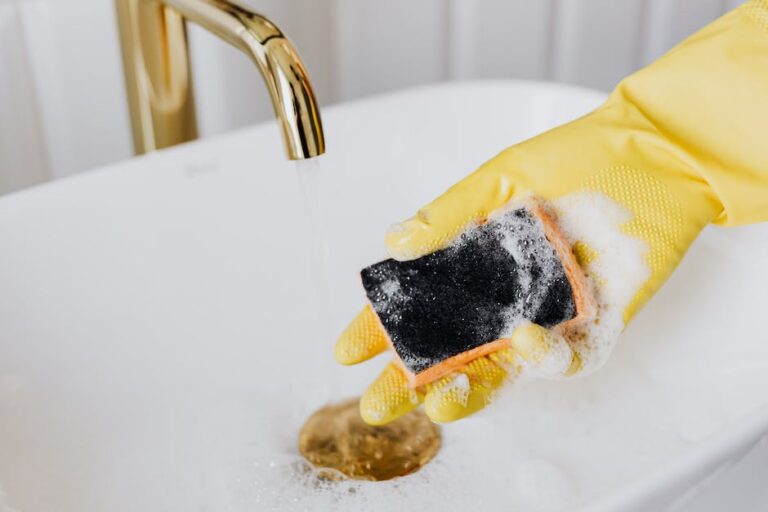
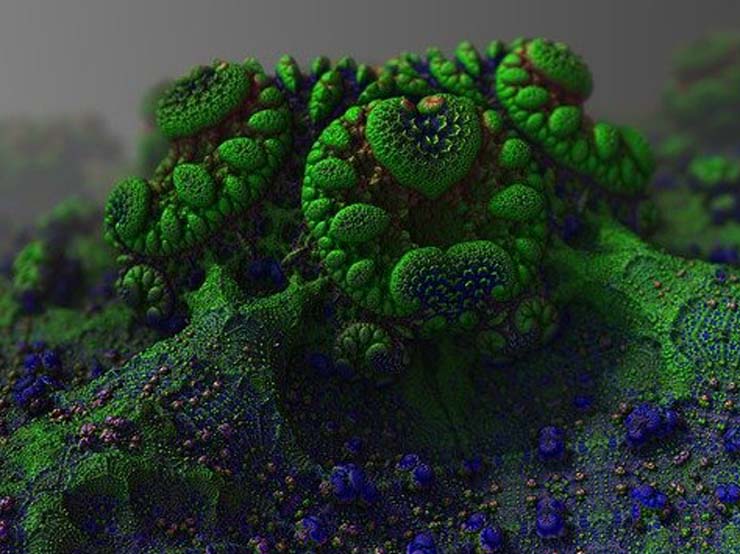



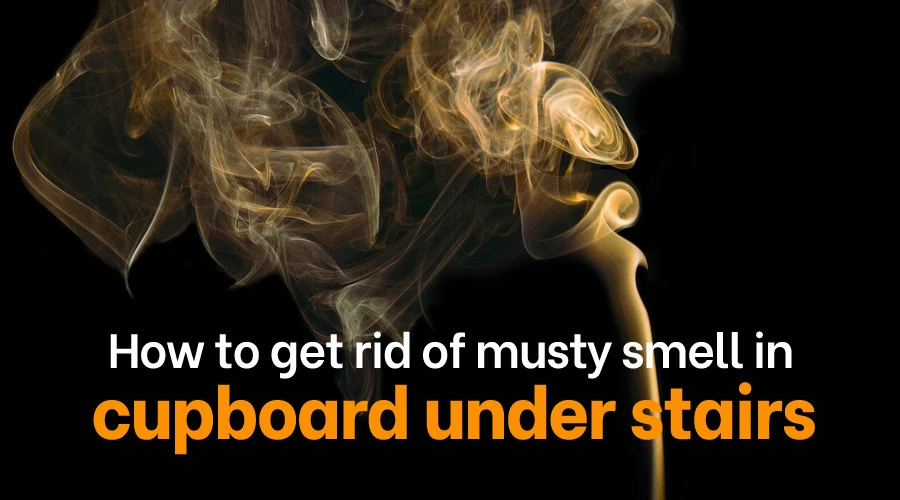





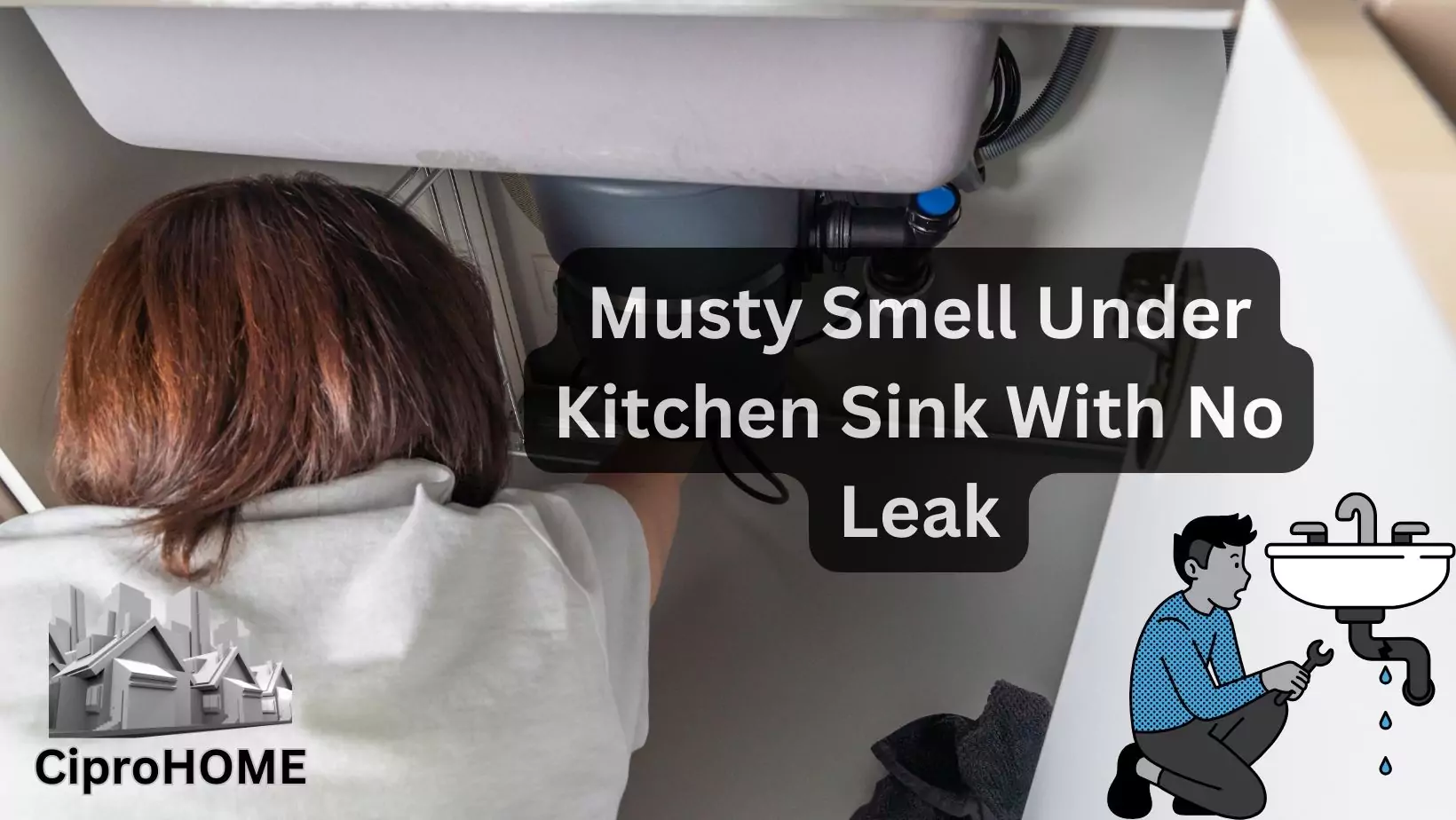
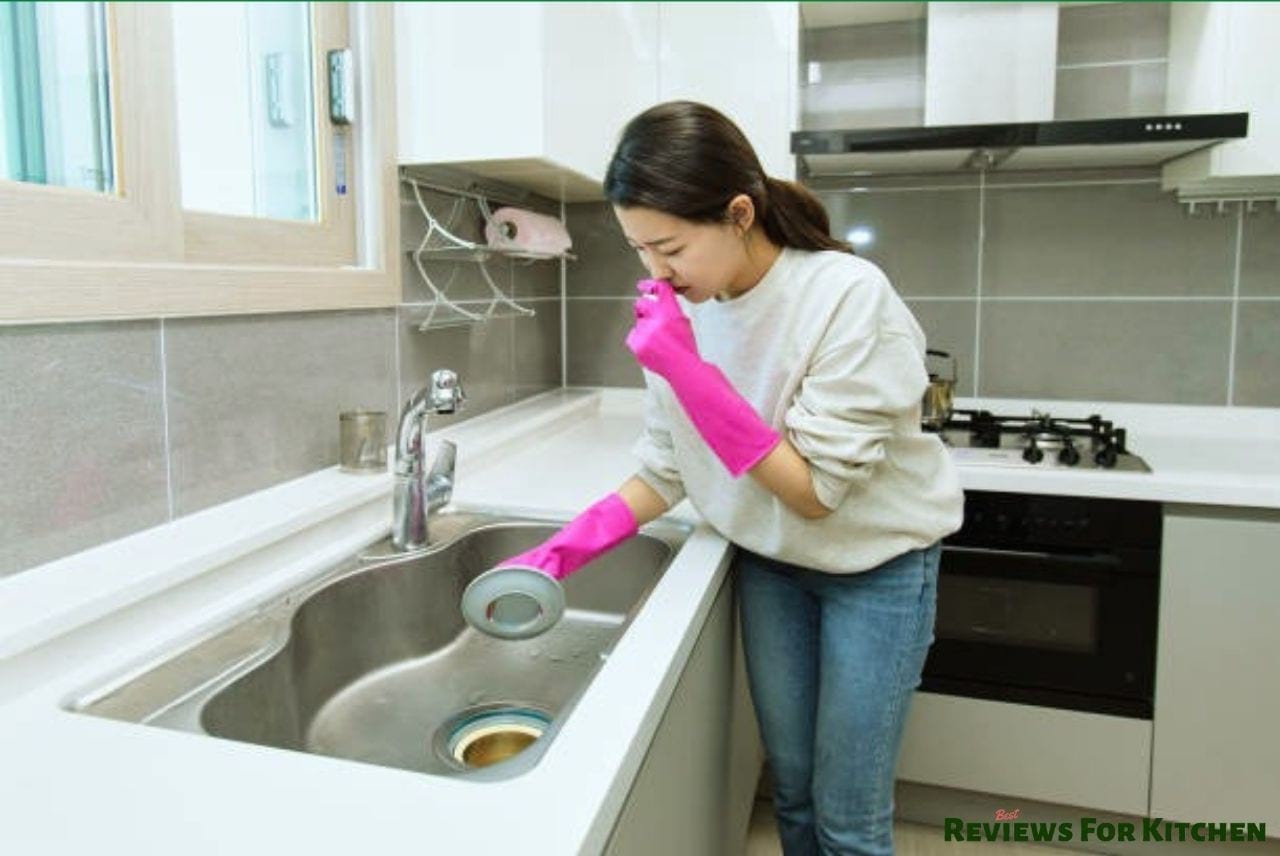











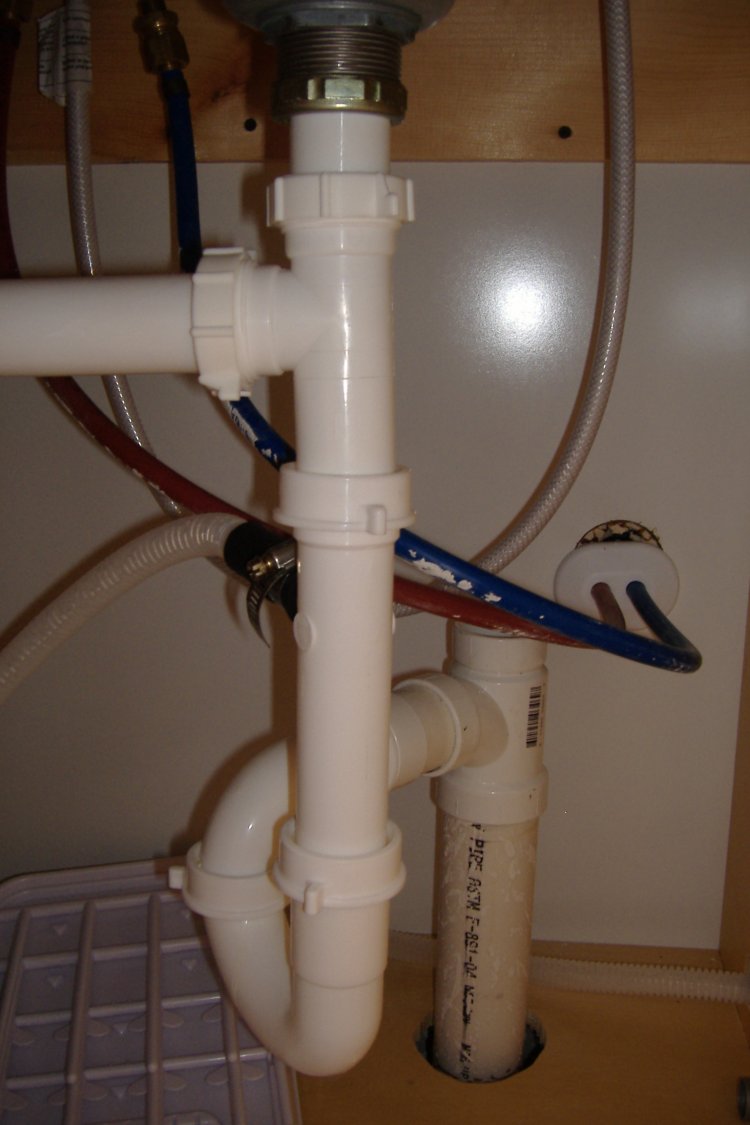




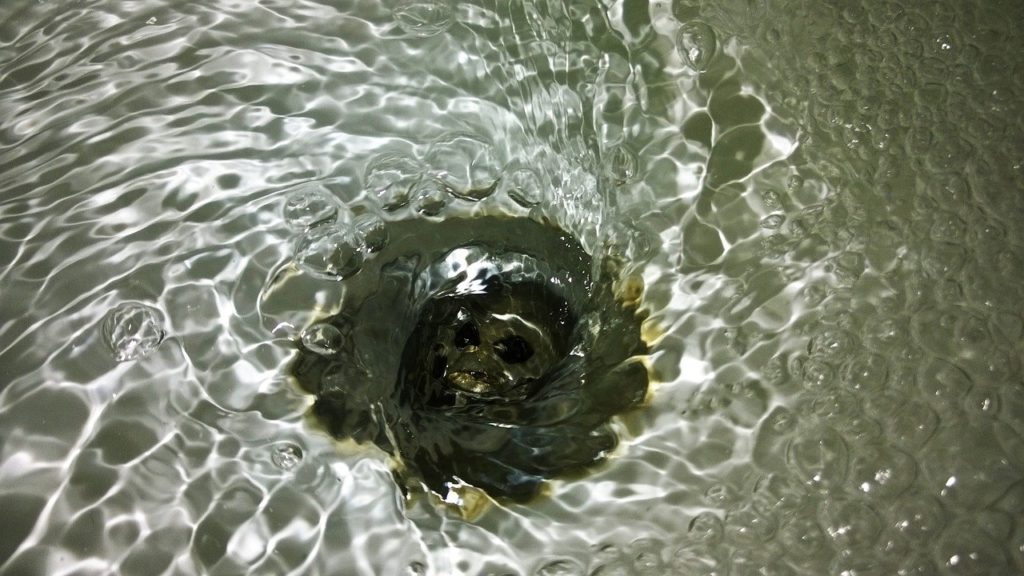


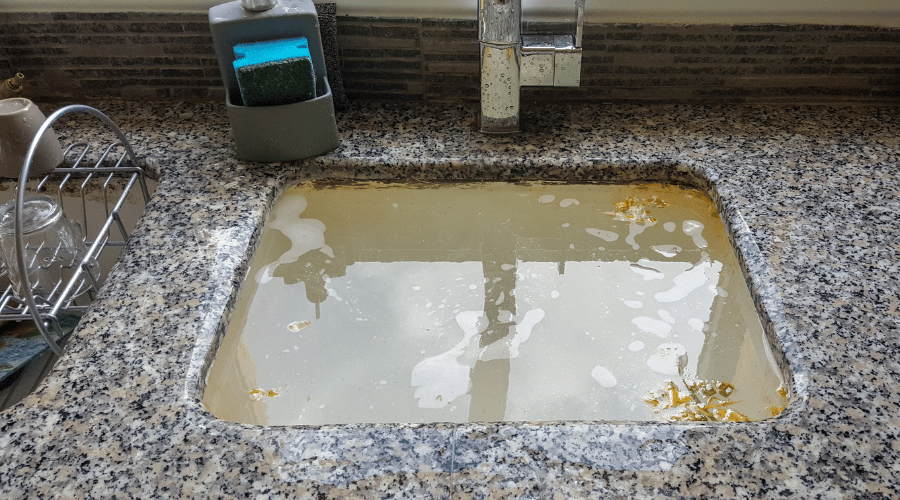










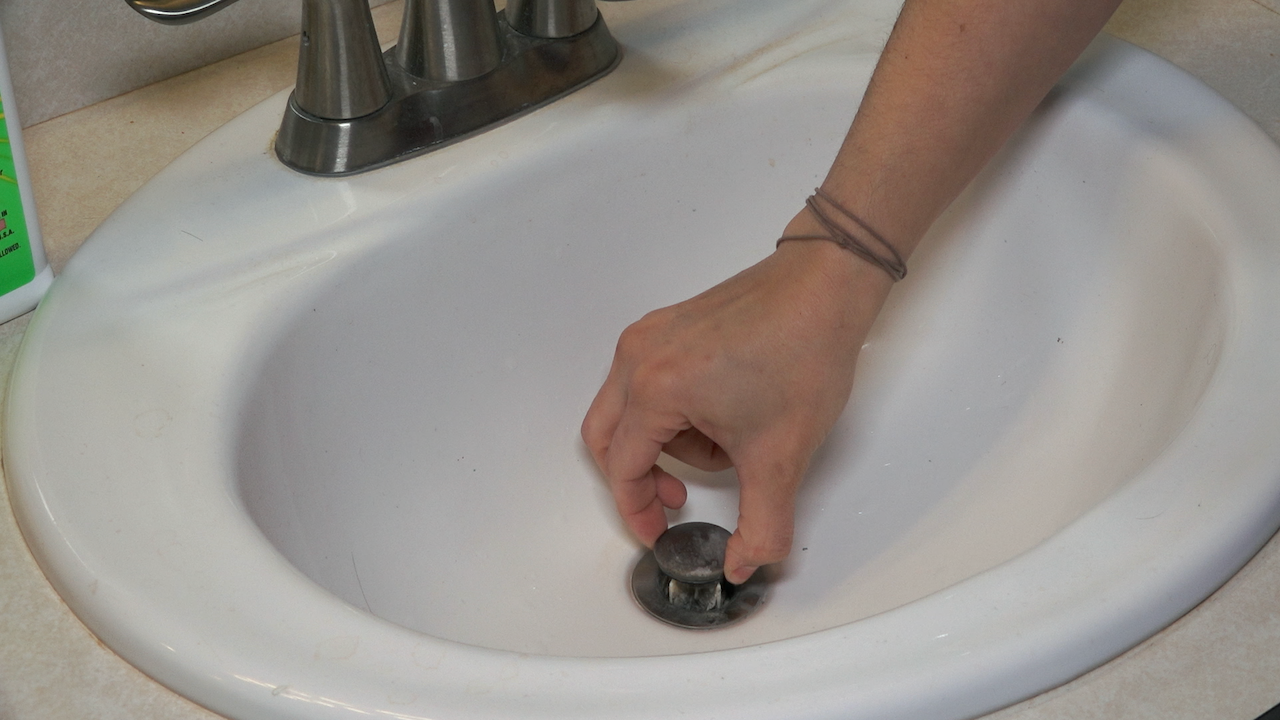
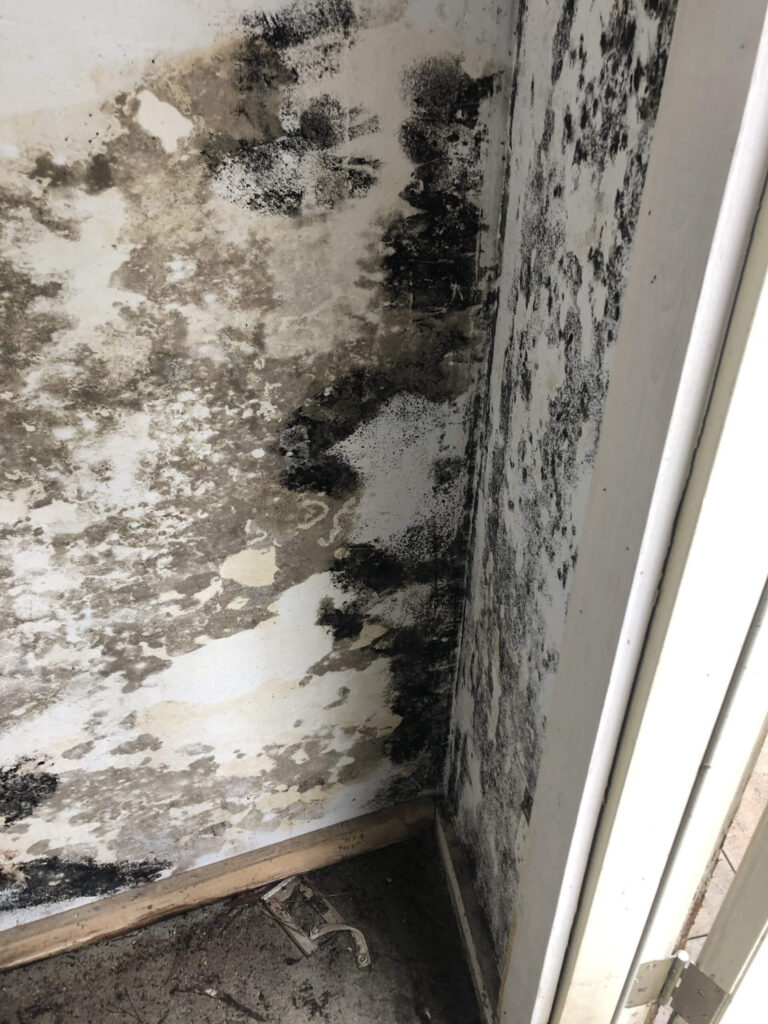

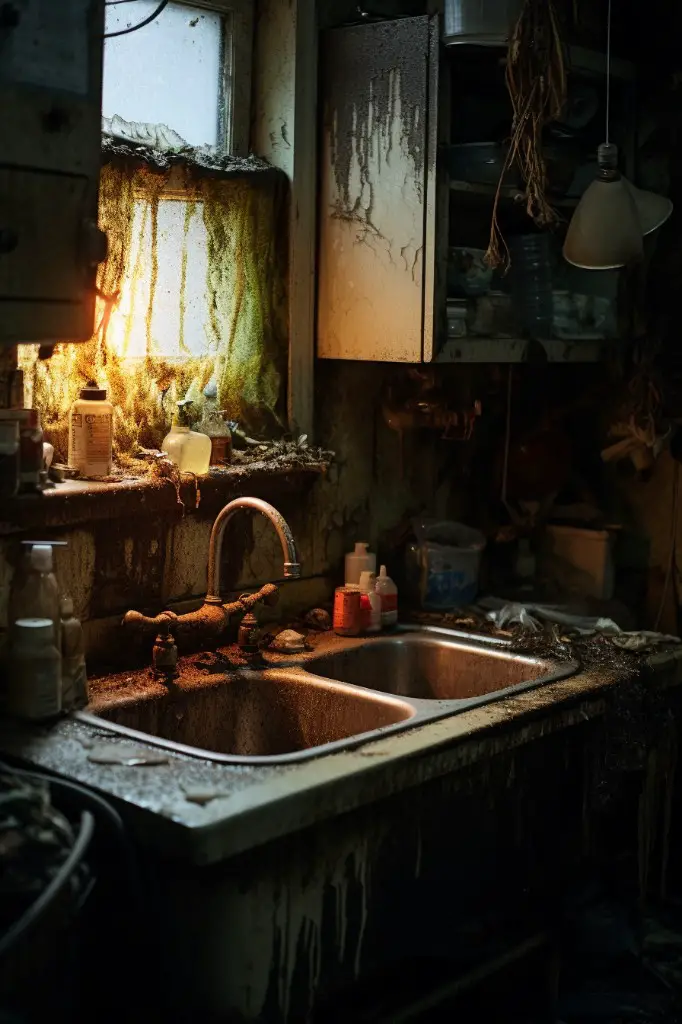
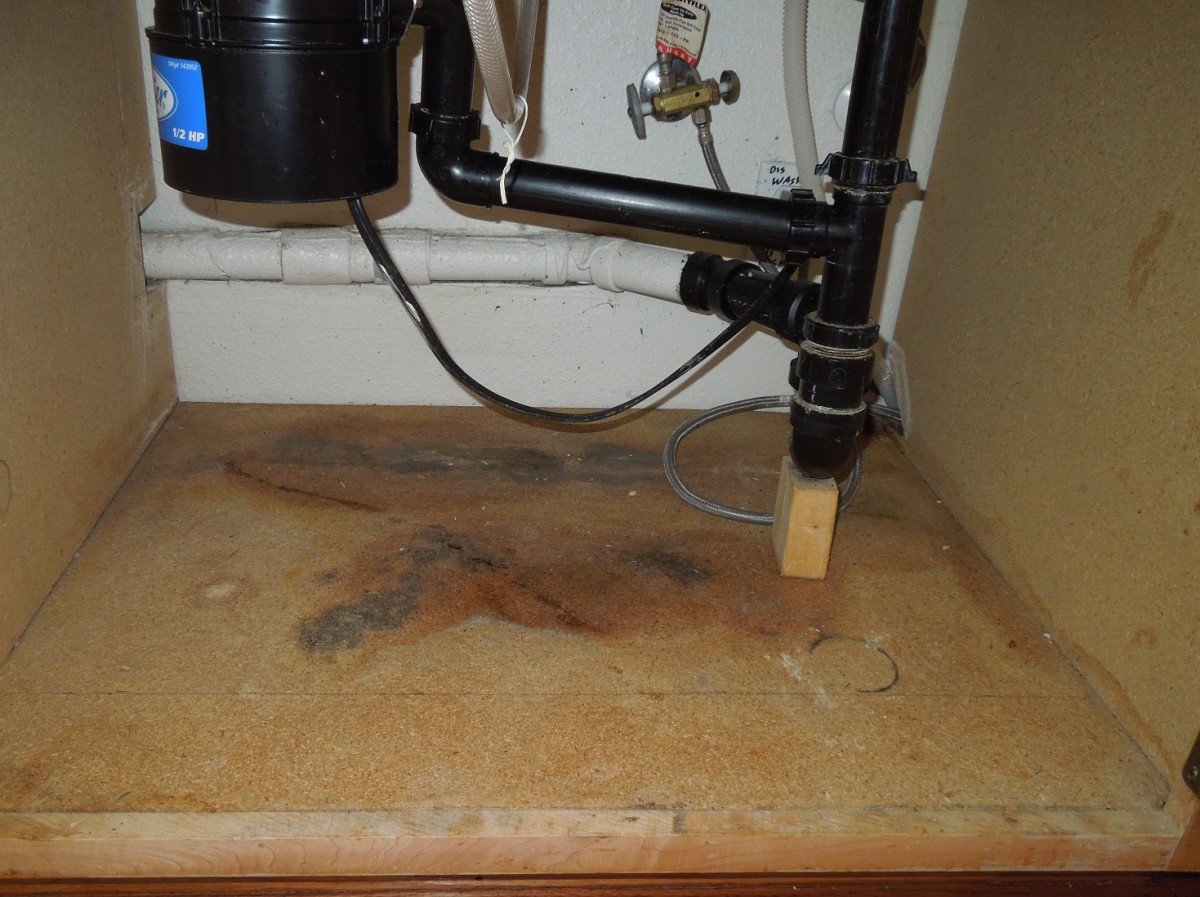
:max_bytes(150000):strip_icc()/water-pipe-under-kitchen-sink-980755976-c96f97e5339142c39e296fe03faba923.jpg)
